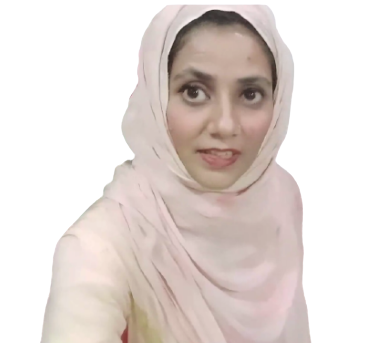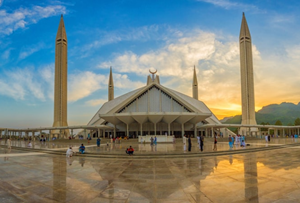English Essay on Democracy in Pakistan For College Students
Pakistan is a democratic country. Democracy in Pakistan is still struggling. In this English essay we shall discuss all the aspects of democracy in Pakistan one by one. Lets read democracy in Pakistan essay;
What is Democracy?
Democracy is a government in which the people are allowed to rule themselves through their elected representatives. In a democracy, the people can choose who will run their country and how it will be run. Democracy is different from other types of governments because the people have a say in what happens.
What are the Types of Democracy?
There are many types of democracy, but they all have some common features. All democracies involve a system where people can vote to choose their leaders. In parliamentary democracies, the citizens elect representatives who make decisions on their behalf. Presidential democracies give power to one person, usually a president, who is elected by popular vote. In semi-presidential systems, the president is not completely independent from the Legislature. They share some powers and responsibilities. Semi-presidential systems are found in countries like Brazil and Argentina. Some countries have a hybrid system where some powers are shared between the president and the Legislature. China is an example of this type of system.
What are the Benefits of Democracy?
Its a fact that democracy is a system of government in which citizens have the power to choose their leaders and make decisions through voting. In a democracy, citizens have the right to express their opinions and hold public meetings to discuss issues. Laws are made by elected officials who are accountable to the people. Democracies also ensure that all people have equal rights and opportunities.
How Does Democracy Work in Pakistan?
Pakistan is a federal republic with a parliamentary system. The President is the head of state, but the real power lies in the elected prime minister and parliament. The president can veto legislation just once, but he or she cannot make any law. The parliament can pass laws, but they must be approved by the president. Parliament also has the power to impeach the president.
Democracy in Pakistan Essay With Outlines For BA, BSc, ADP, PMS & CSS
The prime minister and parliament are responsible to the people. They are not responsible to any king or other authority outside of Pakistan. This system is called “parliamentary democracy” because parliament is supreme in this system.
The main checks on government power are civilian courts and an independent media. Civilian courts are made up of judges appointed by parliament. Judges can be removed from their positions only by a court of law. Parliament can not appoint or dismiss the chief justice and judges of the high courts.
Pakistan has a civilian judiciary, which is made up of judges appointed by parliamentary committee and chief justice. Judges can be removed from their positions only by a court of law. The judiciary plays an important role in upholding the rule of law in Pakistan and ensures that citizens have access to legal redress if they feel that their rights have been violated.
The History of Democracy in Pakistan
Pakistan is one of the oldest democracies in the world, with a long and tumultuous history. The country’s first democratic elections were held in 1951, The in 1956 first constitution was imposed in which series of democratic measures, including freedom of speech and assembly were ensured. However, Pakistan’s democracy was repeatedly challenged by military coups and authoritarian rule. In 1977, General Zia ul-Haq introduced a series of conservative policies which drastically altered the country’s political landscape. Under Zia’s rule, Pakistan became an Islamic state governed by a military dictatorship. Despite these challenges, democracy continued to flourish in Pakistan through periodic elections and various civil rights movements like MRD.
Democracy declined rapidly after the death of Zia-ul-Haq in 1988. The military generals who had ruled Pakistan since 1977 were replaced by a civilian government, but Zia’s tight control of the military and his centralized policies led to increasing political instability. Economic stagnation, a major factor in social unrest, worsened under civilian rule. In response to mounting pressure from protesters and international actors, the government introduced limited reforms in 1996, but they did not significantly improve the situation. A series of coups and counter-coups followed Zia’s death, culminating with General Pervez Musharraf’s takeover in 1999.
Under Musharraf’s rule, democracy continued to decline as he tightened his grip on power through a combination of martial law and propaganda campaigns aimed at marginalizing political opponents. In 2007, Musharraf declared a state of emergency, which gave him the power to suspend basic rights and freedoms. In 2007, he amended the Constitution to give himself additional powers. These measures helped him stay in power amid mounting opposition and public protests.
Despite these challenges, some progress was made during Musharraf’s reign in terms of increasing access to education and healthcare. Additionally, the government increased funding for social programs such as housing and nutrition assistance. However, these initiatives were not enough to counterbalance the overall decline in democracy under Musharraf’s rule.
Musharraf instituted sweeping changes to the Constitution which weakened democratic institutions and gave more power to the military. Today, Pakistani democracy is still struggling to recover from these events.
Changes in Democracy Over Time
Pakistan has had a long and tumultuous history with democracy. The country has gone through many changes in terms of its democracy, from periods where it was very limited to one party rule, to a more recent period where multiple parties are present and there is some level of civil liberties. However, there are still many challenges facing democracy in Pakistan, including a lack of trust in institutions and a high level of corruption.
The Future of Democracy in Pakistan
Democracy is a system of government in which citizens are able to participate in the making of decisions that affect their lives. In Pakistan, democracy is currently being threatened by hybrid rule and an unstable political environment. The future of democracy in Pakistan is uncertain, but it remains a key part of the country’s progress.
Key Facts About Democracy in Pakistan
1-Pakistan was under the British king till 1956.
2-Pakistan tried true presidential system in 1962 constitution.
3-Benazir Bhutto was the first female prime minister of Islamic world.
4-Lawyers movement forced the military ruler Musharraf to leave the power.
5-Hybrid democracy was introduced in Pakistan in 2018.
6-First general election was held in Pakistan in 1970.
7-Creation of Pakistan was the result of democratic process i.e 1945-46 election.
8-1985 elections in Pakistan was non party election.
Conclusion:Democracy is a vital part of any society. It allows people to voice their opinions and make decisions that affect their lives. In Pakistani, there have been many changes to democracy over the years. However, it is still an ongoing process and there are still areas that need improvement. If you like this Democracy in Pakistan essay then read our following English essay too;
Essay on Importance of Technical Education in Pakistan (English & Urdu)

I am professional career counselor and have experience of serving as Vice Principal of Arqum House Officers Academy. I have completed my M.Sc Gender Sciences & now enrolled in MS. I have written thousands of articles on unlimited topics. My educational youtube channel is SA Vlogs Family.


